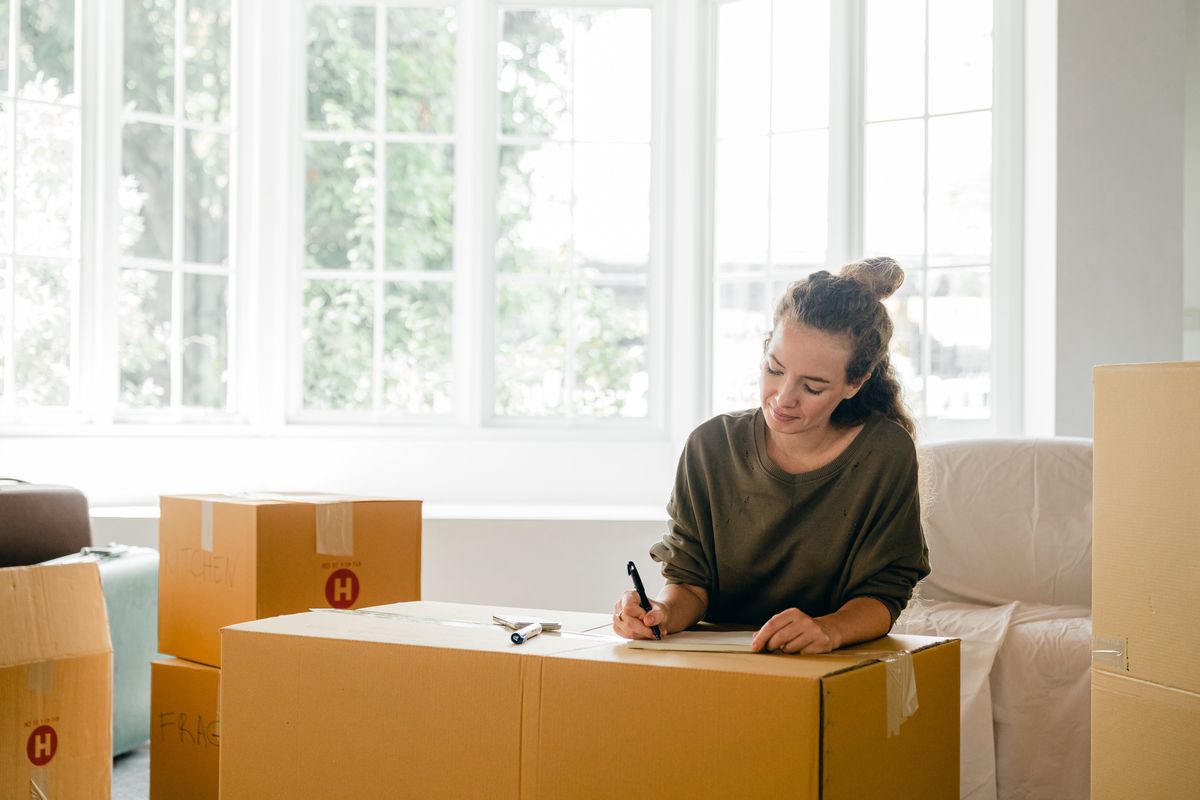The Permissions You Need When Renting Out a Room in Copenhagen
Navigating Copenhagen's rental market requires understanding permissions and regulations. It's about creating a legally compliant, safe, and beneficial arrangement for both landlords and tenants, ensuring a positive rental experience in this vibrant city.

Are you considering renting out a room in your place in Copenhagen? That's a fantastic idea! For homeowners and potential landlords, Copenhagen doesn't just offer scenic views and vibrant city life; it also presents an opportunity to earn extra income by renting out a room. However, before you place that "Room for Rent" sign in your window or post your listing online, there's a crucial step you must not overlook: understanding and obtaining the necessary permissions.
Renting out a room in Copenhagen is not merely about finding the right tenant; it's also about navigating through a maze of regulations, laws, and permissions to ensure that your rental venture is legal, safe, and profitable. Whether you're a seasoned landlord or considering renting out for the first time, the Danish capital has its specific requirements that can seem daunting at first glance. This blog aims to demystify the process, offering a comprehensive guide to the permissions needed to rent out a room in Copenhagen.
Ready to find your perfect match in Copenhagen? List your available room on Hemavi and connect with like-minded roommates today!
What is the The Danish Rental Act?
The Danish Rental Act (Lejeloven) is the primary legislation governing the rental market in Denmark, including the rights and obligations of landlords and tenants. This comprehensive act covers various aspects of rental agreements for both residential and commercial properties.
It's crucial to familiarize yourself with the Danish Rent Act, which outlines the legal framework for rentals. This includes specific rules for different types of rental properties, such as privately owned apartments or leasehold apartments. Depending on the type of property and your status (owner, tenant, or leaseholder), different regulations may apply, especially concerning the duration of tenancy and the rights to sublet.
Are there specific rules for renting out a room in my apartment under the Danish Rental Act?
If you're the owner of the property in which you're renting out the room, you won't need any explicit permissions – so go ahead and start renting! However, there are some things you'll need to keep in mind:
- Municipal Regulations: Check with the Copenhagen Municipality (Københavns Kommune) for any local regulations regarding room rentals. There might be specific rules, especially for short-term rentals or if you are renting out part of your primary residence.
- Health, Safety, and Fire Regulations: Your rental space must meet certain health, safety, and fire regulations. This includes having adequate means of escape in case of fire, proper ventilation, and other safety measures.
- Taxation: Income from renting out a room in your property must be reported to the Danish tax authorities (SKAT). There are allowances and deductions available, but it's important to declare this income to stay compliant with tax laws.
- Insurance: Ensure that your home insurance policy covers rental activities. Renting out a room can affect your insurance coverage, and it's advisable to inform your insurance company to adjust your policy if necessary.
- Short-term Rentals: If you're considering platforms like Airbnb for short-term rentals, be aware that there are specific regulations and limits on how many days per year you can rent out your room or apartment. Most recently, there was a limit of 70 days per year for short-term rentals, but these regulations can change, so it's important to stay updated.
What are the permits I need to sublet a room in my leased apartment?
In some cases, especially if the property is under certain types of housing cooperatives (Andelsboligforening) or if it's a protected apartment, you might need approval from the housing association or other regulatory bodies to rent out a room.
If you're a tenant and are hoping to sublease or sublet a room in your rental apartment, there are some limitations you'll need to keep in mind. Although subletting is also covered by the Danish Rental Act, which means that the landlord cannot oppose your decision to sublet in general as long as you follow the rules of the Act, there are some restrictions to be aware of.
When you sublet a property, it doesn't establish a legal agreement between the original landlord and the subtenant. As a tenant turning into a sublandlord for your subtenant, your responsibilities under your primary lease remain unaffected. This includes being responsible for any damages caused by your subtenant and ensuring rent is paid to your landlord, regardless of whether the subtenant fulfills their rent obligations to you. Essentially, all the details of your original agreement with the landlord continue to be only your responsibility.
A partial sublet, in which you're renting only a part of your entire rental property (such as a room in an apartment), you're limited to subletting up to half the apartment's rooms, and the total occupants can't exceed the number of rooms. For example, if you're a couple living in a two-bedroom apartment, you're not allowed to rent the second bedroom in your apartment. In the case of a partial sublet, landlords can demand a formal lease agreement between tenants and their subtenants.
What are the safety regulations for a room rental covered in the Danish Rental Act?
Landlords are responsible for ensuring that the property meets all safety standards and is fit for living. This includes adherence to building codes, fire safety regulations, and health standards. Landlords must ensure that electrical systems, heating, plumbing, and other facilities are in good working order and comply with safety regulations. The act also stipulates that landlords are responsible for maintaining the property and carrying out necessary repairs to ensure it remains habitable and safe. Tenants may be responsible for minor maintenance and repairs, but the landlord should address significant issues that affect the property's safety.
The rental property must meet certain health standards, ensuring adequate ventilation, proper waste disposal, and the absence of mold and damp, which are critical for the tenant's well-being.
Specific fire safety measures are not detailed in the Rental Act but are regulated by Danish building regulations and fire safety laws. Landlords should ensure that smoke detectors are installed and working, provide clear escape routes, and adhere to any local fire safety regulations.
While the Danish Rental Act doesn't specify insurance requirements, landlords typically need to have a comprehensive building insurance policy that covers fire, water damage, and other structural issues. Tenants are often encouraged or required to have their own contents insurance to cover their personal belongings and liability insurance in case of damage to the property.
For the most accurate and detailed information regarding safety and insurance regulations applicable to renting a room in Denmark, it's advisable to consult:
- The official Danish Rental Act for general tenancy laws.
- Local municipality guidelines and building codes for safety standards.
- Insurance companies for advice on appropriate insurance policies for both landlords and tenants.
Conclusion
Navigating the permissions needed to rent out a room in Copenhagen is a crucial step towards ensuring a smooth and lawful rental process. Most important is understanding the Danish Rental Act, which provides a roadmap to follow for successful rentals. Ultimately, renting out a room in Copenhagen is about more than just finding the right tenant; it involves a meticulous preparation process, including legal documentation, property readiness, and adherence to local laws and guidelines.
As the rental market continues to evolve, staying informed about changes in legislation and market trends is imperative for landlords. By doing so, you can navigate the complexities of renting out a room with confidence, knowing that you're contributing positively to Copenhagen's vibrant and diverse community.
Your journey to finding the perfect shared accommodation in Copenhagen begins on Hemavi. Click here to list your room and match with roommates who share your lifestyle and interests.
Are you renting out a room in Copenhagen?
Check out our Ultimate Guide to Writing a Room Rental Agreement in Denmark– it tells you everything you need to know about room rentals and their lease agreements in Denmark.




Comments ()